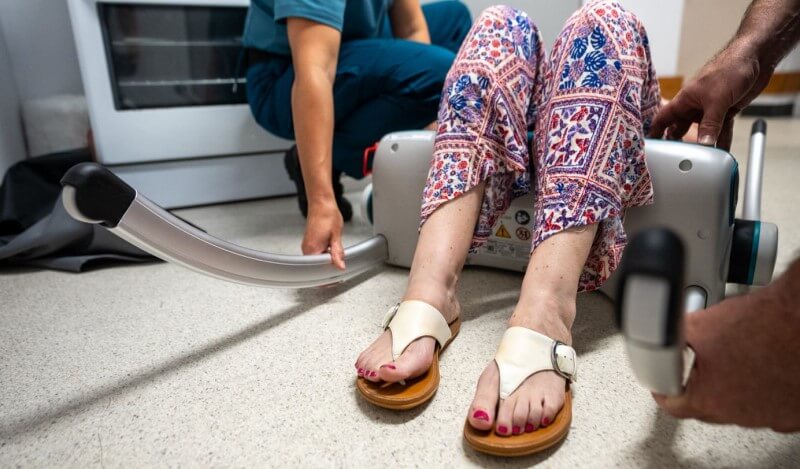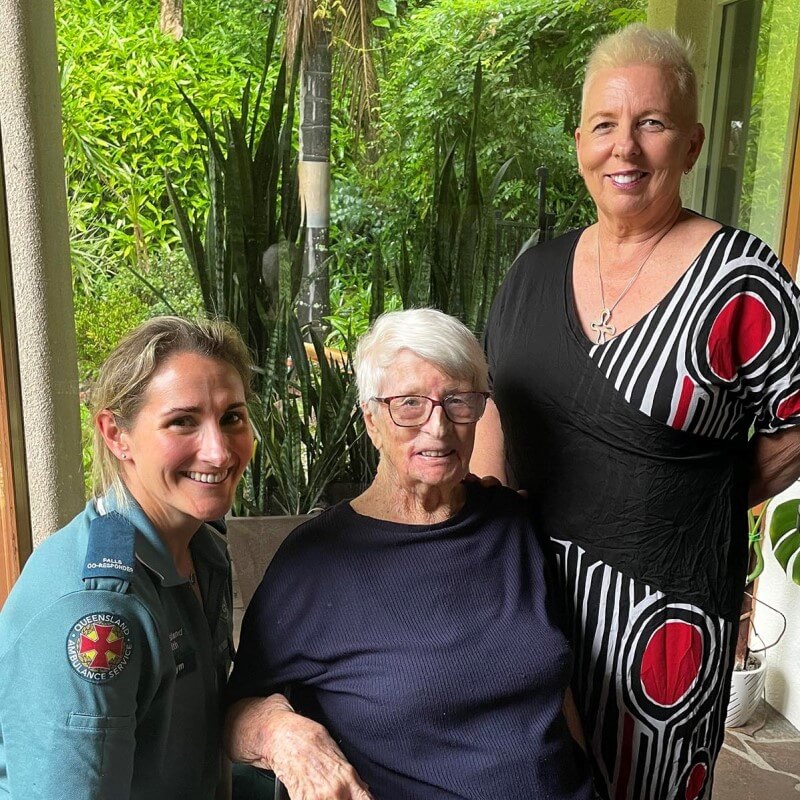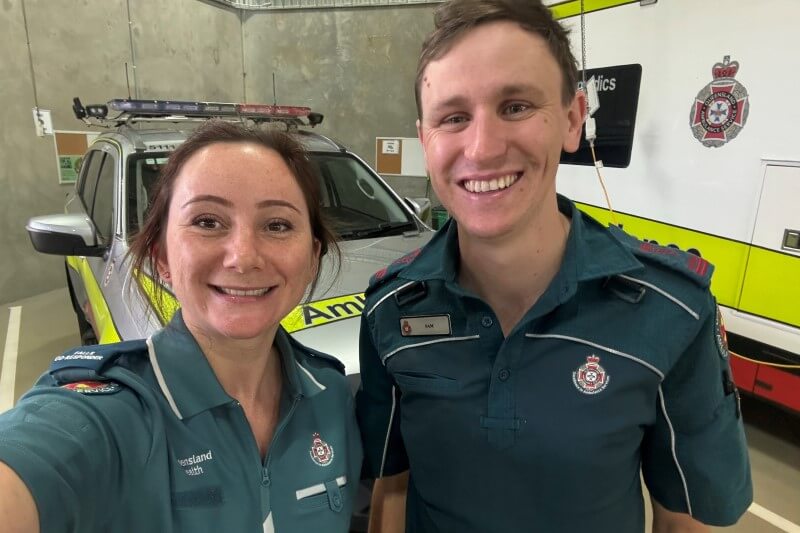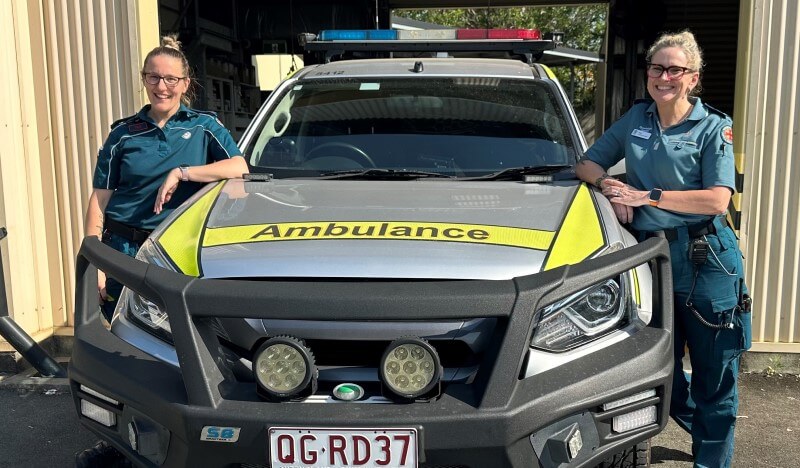
After a successful pilot in 2024, planning is now underway to expand the Queensland Ambulance Service’s (QAS) Falls Co-Response Program into more of the state’s regions in 2025.
The QAS Falls Co-Response Program pairs a paramedic with an Allied Health Professional, either an occupational therapist (OT) or a physiotherapist (PT), from a participating Hospital and Health Service (HHS), who respond to people who have fallen and have either minor or no significant injuries.
The teams operate from 6am-6pm, seven days a week with the aim of ensuring patients who have fallen are responded to sooner and are assessed by the specialist multidisciplinary team which can access appropriate treatment pathways.
QAS Falls Co-Response Program Manager Kym Murphy said according to the QAS’s state-wide statistics for 2023, there were 117,355 fall-related calls, making up 13 per cent of all Triple Zero (000) calls to the service.
Sixty-five per cent of the these calls were for people aged 65 years and over.
“The pilot program was developed in response to our research which found uninjured or minorly injured falls patients were experiencing longer wait times to be checked over and get back on their feet and despite being taken to hospital, often did not end up needing a hospital admission,” Kym said.
“We found the longer people remained on the floor, the greater the risk they had of succumbing to other health emergencies."
Kym said the statistics gathered since the pilot’s inception demonstrated the program’s benefits to both patients and the health system.
“Over the last year our teams working across Brisbane’s metropolitan region (Met North and Met South) attended 2,272 Code 2 incidents (immediate response without lights or sirens),” Kym said.
“Many of these saw a slightly shorter response time compared to standard acute units’ arrival times.
“We also found 50 per cent of our patients needed help getting up from where they’d fallen.
“Of the 2,272 patients, 995 were able to remain at home after our specialist team had assessed and treated them.
“We’ve estimated the resulting reduction in unnecessary hospital transports means a saving of more than 5,000 patient hours in the Emergency Department (ED) over the first 12 months of service.
“Overall, this service's true value lies in our teams' collective knowledge and skills they take to their patients, who are not only checked over for injuries, but also assessed in their own living environment with either minor tweaks or supports introduced to reduce their falls risk.
"This helps keep them safe in their homes and allow them to maintain their independence for longer.”